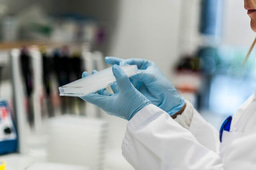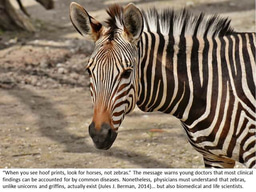What does the European Joint Programme on Rare Diseases offer?

The European Joint Programme on Rare Diseases (EJP RD) is a five-year programme that was initiated in 2019 under the Horizon 2020 framework of the European Union (EU). Co-financed by the European Commission (EC) and the Member States with an overall budget of over € 100 million, it integrates more than 130 institutions from 35 countries. Its main objective is to create a research and innovation pipeline “from bench to bedside” (a rare diseases research ecosystem) ensuring rapid translation of research results into clinical applications and uptake in healthcare for the benefit of patients.
The programme brings together research funders, ministries, research institutes and universities, hospitals (including all 24 European Reference Networks for rare diseases or ERNs), EU research infrastructures, foundations, and patient organisations. EJP RD represents the continuation of European efforts made in the field of rare disease during last 15 years. EJP RD integrates existing infrastructures, trainings, funding programmes and tools, expands them, and develops new essential ones. This allows for the creation of a harmonised (and centralised) multi-stakeholder rare disease research ecosystem.
EJP RD is organised around 5 main axes:
- Collaborative Research Funding
- Coordinated Access to Data, Tools & Services (Virtual Platform)
- Capacity building (Training) & Empowerment
- Accelerated translation of research results & clinical studies
- Centralised coordination and transversal activities (strategy, sustainability, ethics & regulatory, communication).
These are some of the EJP RD principal activities:
Research Funding and Beyond. EJP RD funds research on rare diseases mainly through the mechanism of annual Joint Transnational Calls (JTCs). EJP RD has already completed three JTCs, with the first two focusing on acceleration of diagnosis and/or exploration of disease progression and mechanisms of rare diseases and effective therapies – 40 multinational projects were funded for € 55 million in the two first JTCs. The third JTC for social science and humanities research projects to improve health care implementation and daily life of people living with a rare disease resulted in 12 multinational projects being funded for a total of € 11.5 million. The fourth JTC (JTC2022) that has been launched at the end of 2021 is dedicated to the development of new analytic tools and pathways to accelerate diagnosis and facilitate diagnostic monitoring of rare diseases, and is currently accepting pre-proposals until February 16th, 2022. A fifth JTC is foreseen in 2023.
In addition to funding research directly, EJP RD provides financial assistance and support for organising face-to-face, online as well as hybrid networking events that bring together health care professionals, researchers, patient advocacy groups, and other relevant stakeholders through the Networking Support Scheme. EJP RD also offers financial support for the organization of ERN (European Reference Networks) workshops to train ERN-affiliated researchers and clinicians in relevant innovative themes. For researchers who are part of an ERN or would like to build a collaboration with an ERN, a Research Mobility Fellowship programme is also offered that covers stays from four weeks to six months duration at a participating ERN institution (for ERN and external fellows) but also at institutions outside of ERNs for ERN fellows.
Virtual Platform of Data, Tools and Resources. The Virtual Platform aims to open a single door to discover, query and grant controlled access to patient registries, biobanks, genomics & multi-omics repositories, knowledge bases, resources (such as animal models and cell lines libraries), omics deposition & analysis platforms, and translational & clinical research supporting material and services, in a coordinated manner. The Virtual Platform is a federated ecosystem, in which resources are enhanced to be amenable to rare disease research, and made Findable, Accessible, Interoperable and Re-usable (FAIR): data stays at the source level but can be queried at distance from an EJP RD query point.
The building blocks of the Virtual Platform (VP) have been developed and the VP will continue to mature over the remaining years of the EJP RD. The metadata model linking resources has been validated and extended with the latest standards; prioritised rare disease resources have been made ready for linkage; the data model linking records inside the resources is being optimised to consider consent and reuse conditions; and pilot tools to query resources and discover data are in the testing phase before deployment. Additionally, 70 new biological pathways have been created, and some are being exploited through bioinformatic networks using identified multi-omics data to accelerate the diagnosis of rare diseases. To know more, visit EJP RD GitHub.
Training and Education. The EJP RD Training and Empowerment program aims to develop knowledge and build capacity of the rare disease research and care community through the delivery of training programs on a wide range of relevant topics for different types of stakeholders. The choice of subjects is varied, ranging from courses on Data Management & Quality, to subjects relevant for Patients, Patient Representatives and Researchers such as knowledge of the therapeutic development and regulatory processes, and the previously mentioned ERN Training Workshops. The E-Learning programme is of special note since it offers academic courses on transversal and multidisciplinary aspects of rare diseases research in a fully online format. The first EJP RD MOOC (Massive Online Open Course) “Diagnosing Rare Diseases: from the Clinic to Research and back” was offered as a free training course in 2021 through a specialised platform (Future Learn), allowing for the training of more than 1500 persons in the first round and close to 3000 persons in total. Three additional MOOCs are currently under development and will be made available through Future Learn in 2022 and 2023.
Support for Research Translation and Clinical Studies. EJP RD provides a variety of support services to rare disease stakeholders. The Expert Mentoring service for rare disease research projects provides free-of-cost, tailored expertise to research teams along each step of the translational pathway, beginning early on at the project proposal phase so that the route to patient impact can be planned out, which greatly reduces the barriers between promising science and accessible treatments. The mentors are acclaimed international experts from governmental agencies, academia and industry. An online Clinical Study Support Office supports ERNs and other clinical teams involved in rare diseases. The assistance offered is intended for clinical investigators for the preparation of clinical studies for the development of new treatments, drug or device repurposing, or diagnostic studies. Investigators can fill out an online form requesting input on anything from design aspects of a trial to statistical methodology adapted to small sample size, and more. These requests are then processed by a dedicated rare disease clinical manager from European Clinical Research Infrastructure Network (ECRIN). Finally, EJP RD provides a Helpdesk that is open to any person interested in rare diseases, providing support in all domains covered by the EJP RD. Questions or request submitted through the Helpdesk are treated by the coordination team, and if required, supported by the range of experts to provide the most suitable and extensive response and support.
EJP RD regularly shares information about its activities as well as funding, training, and job opportunities through its monthly newsletter. Please subscribe!





Join the FEBS Network today
Joining the FEBS Network’s molecular life sciences community enables you to access special content on the site, present your profile, 'follow' contributors, 'comment' on and 'like' content, post your own content, and set up a tailored email digest for updates.